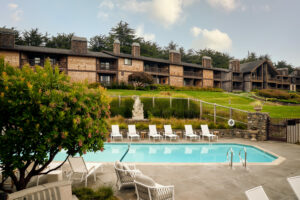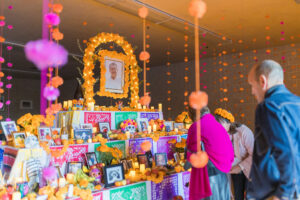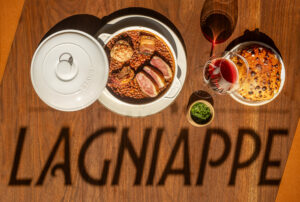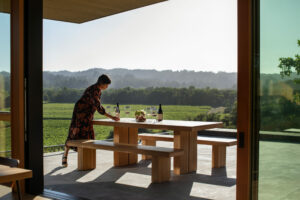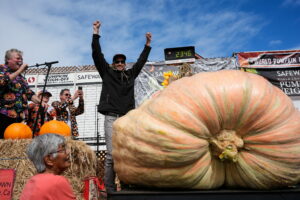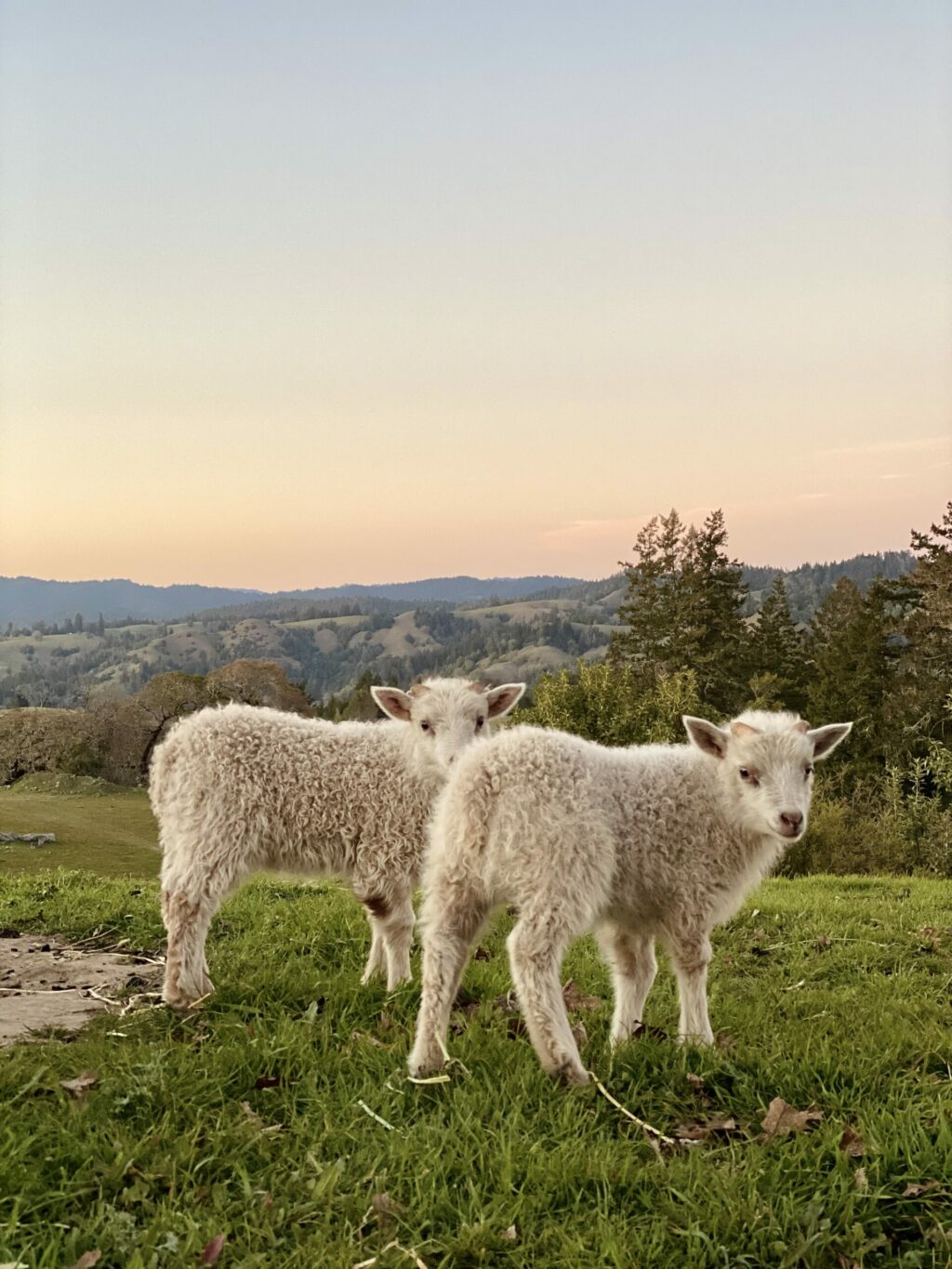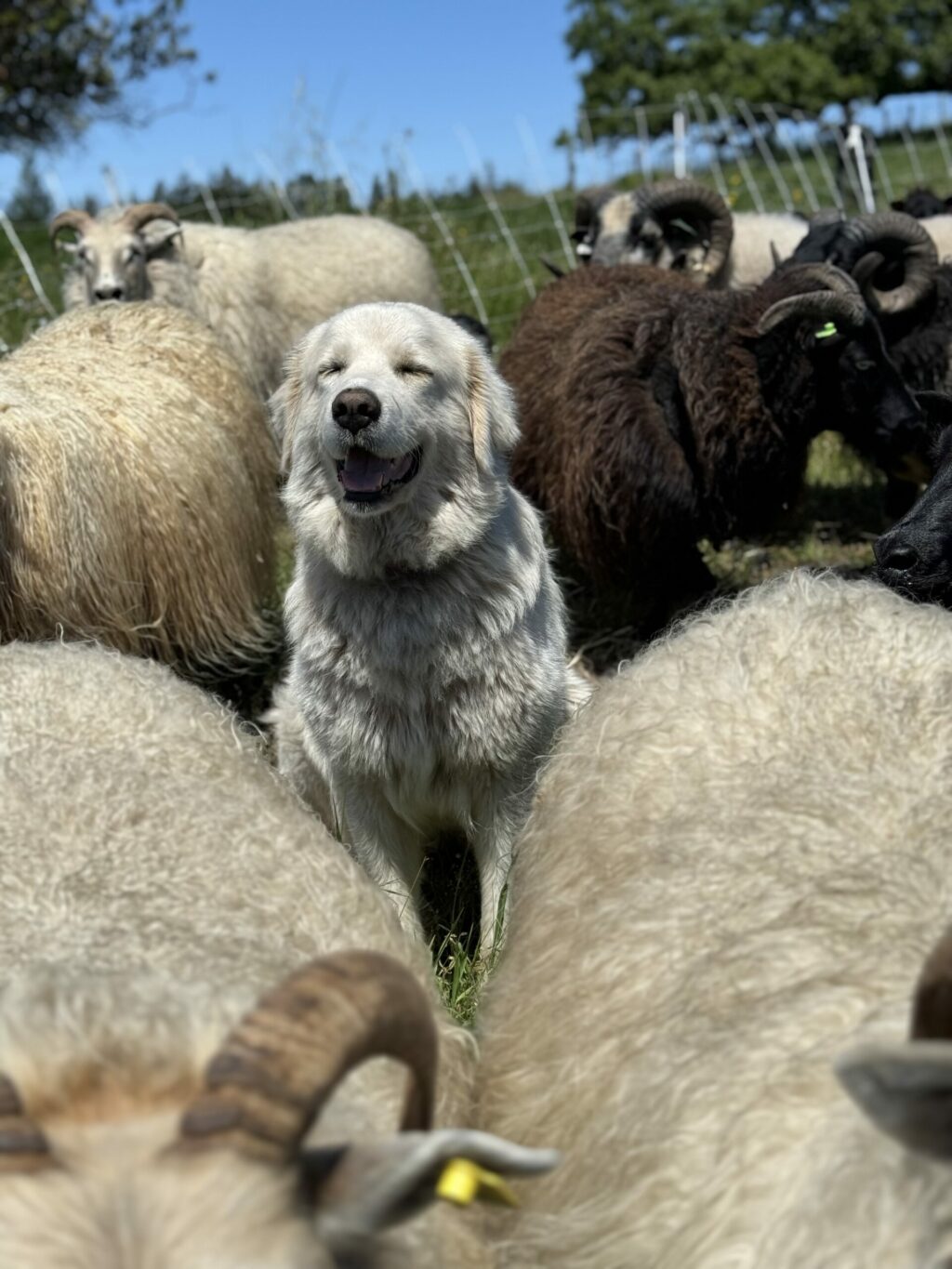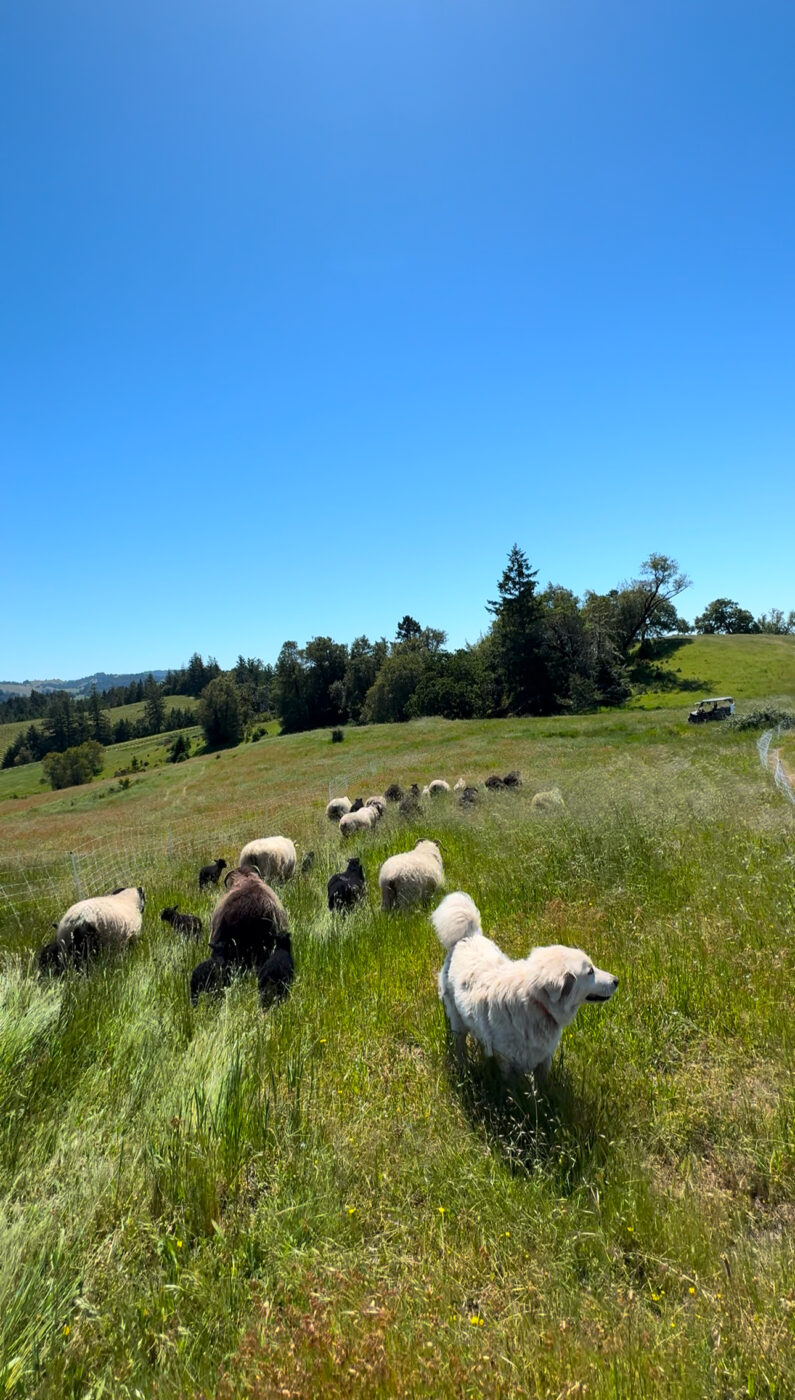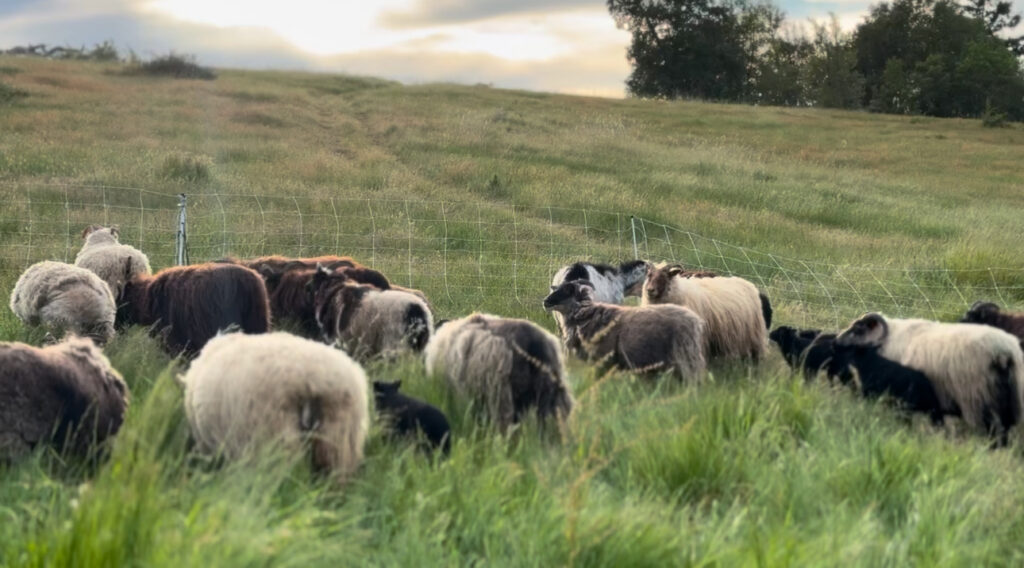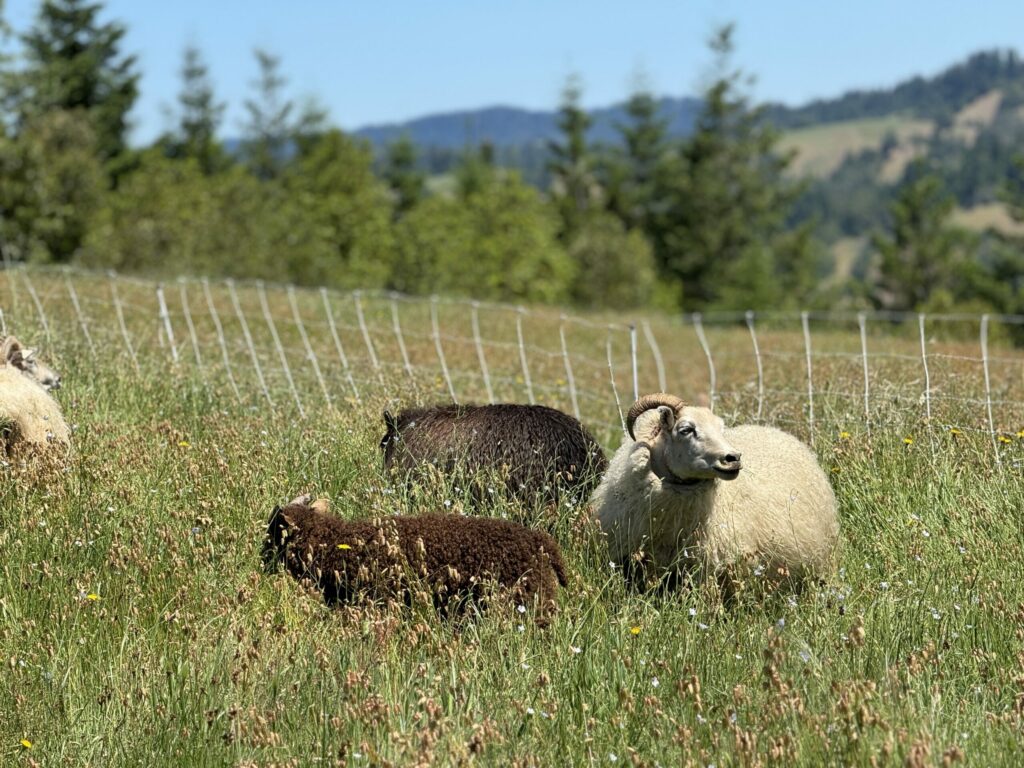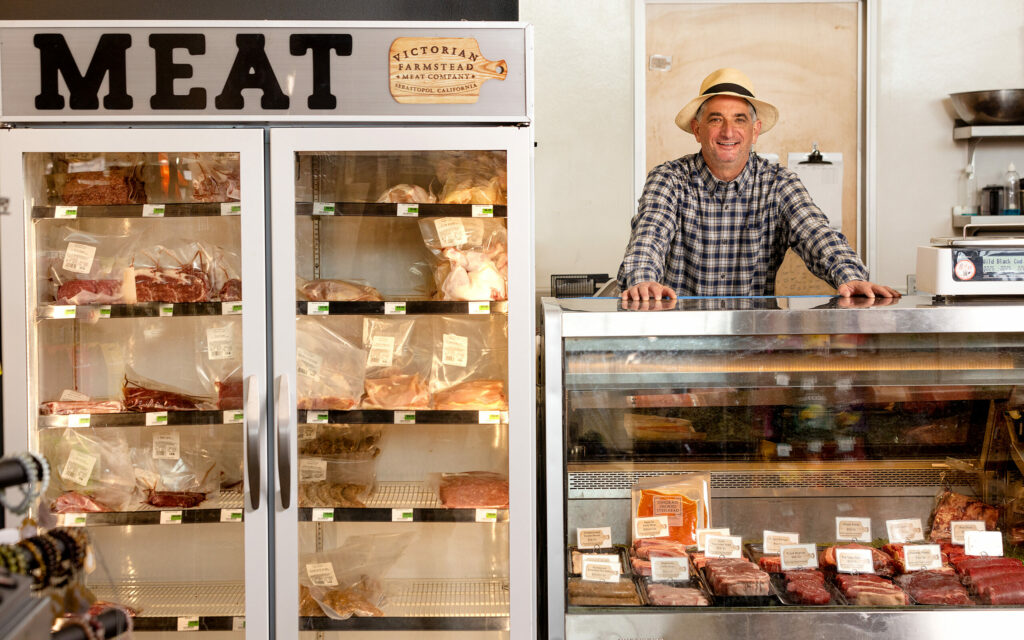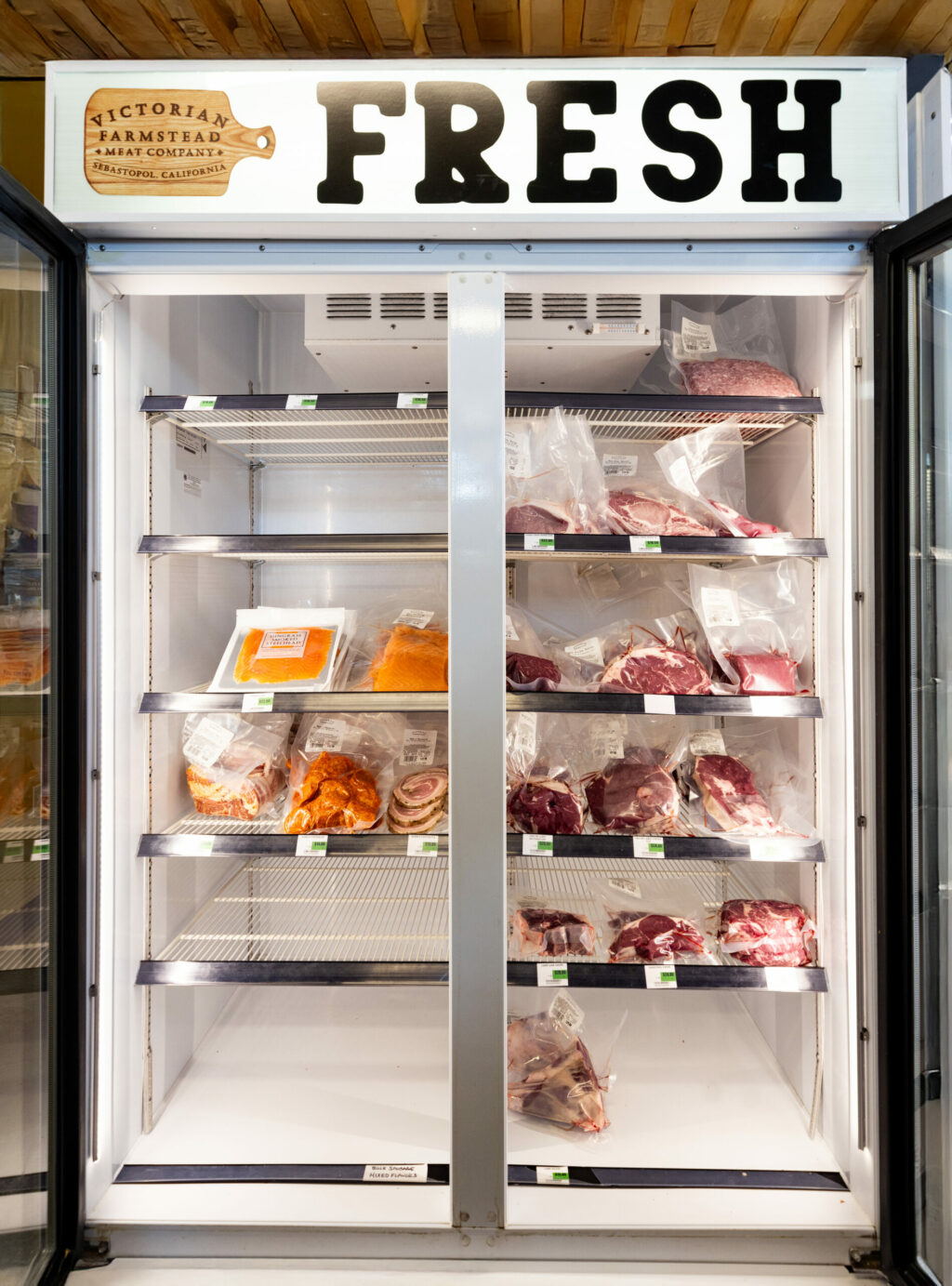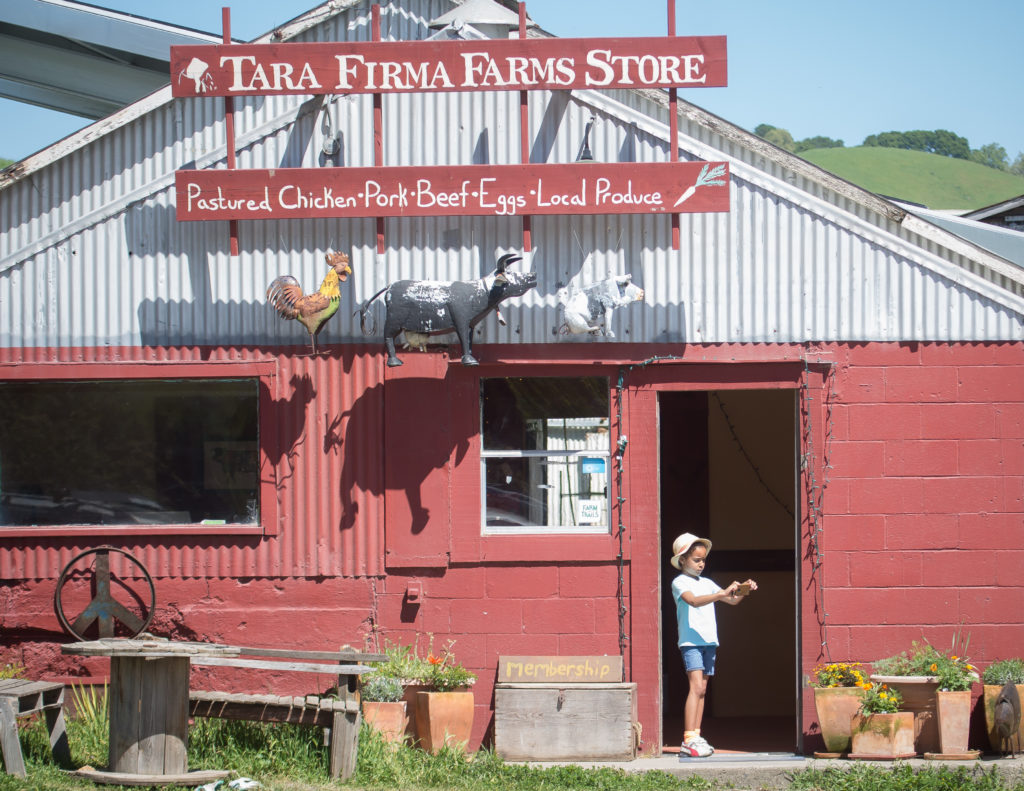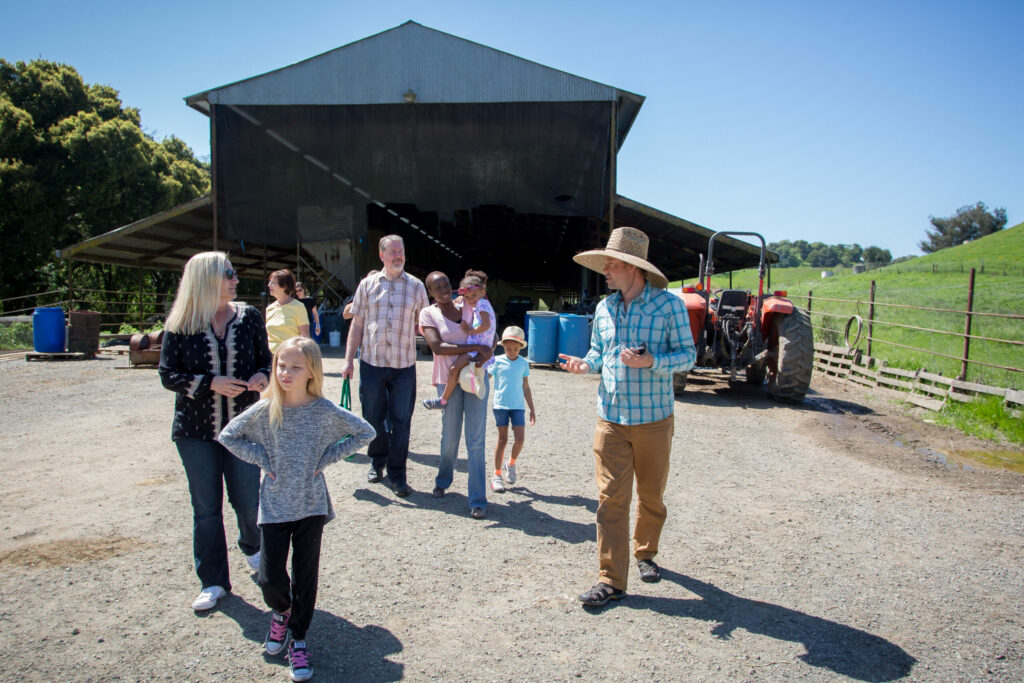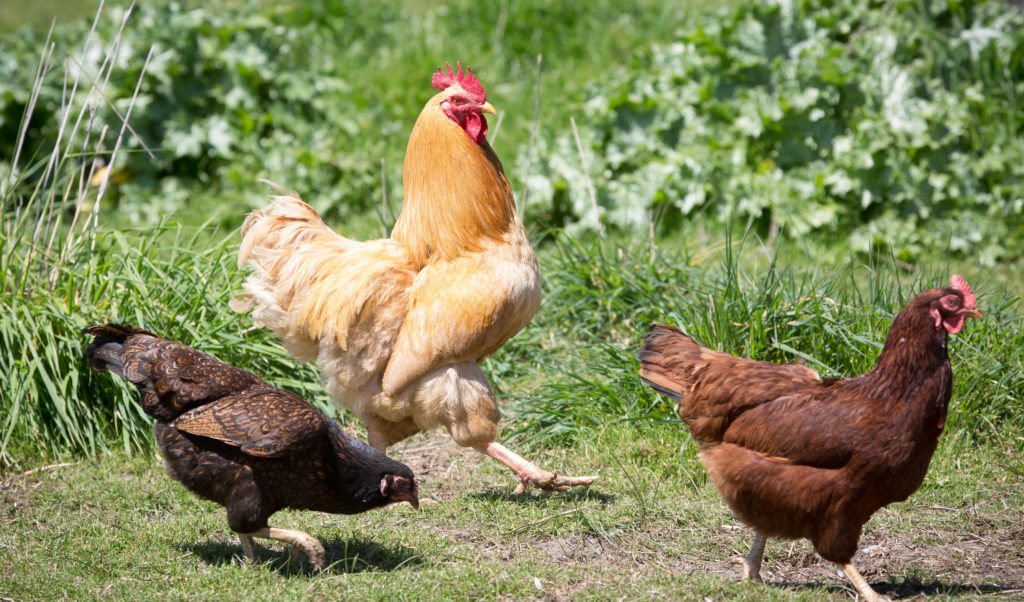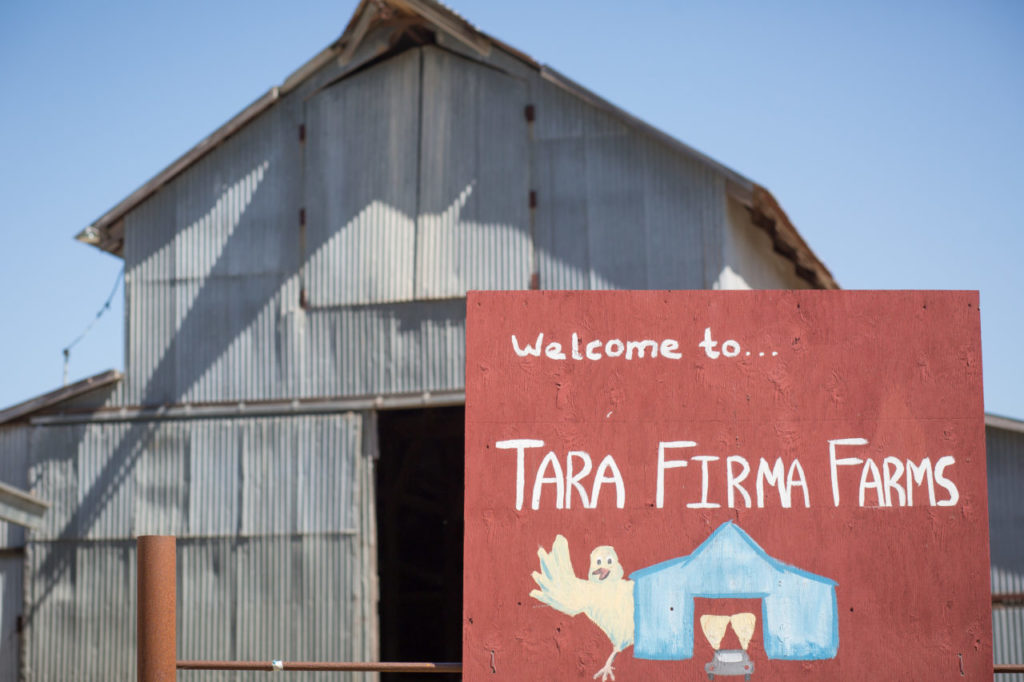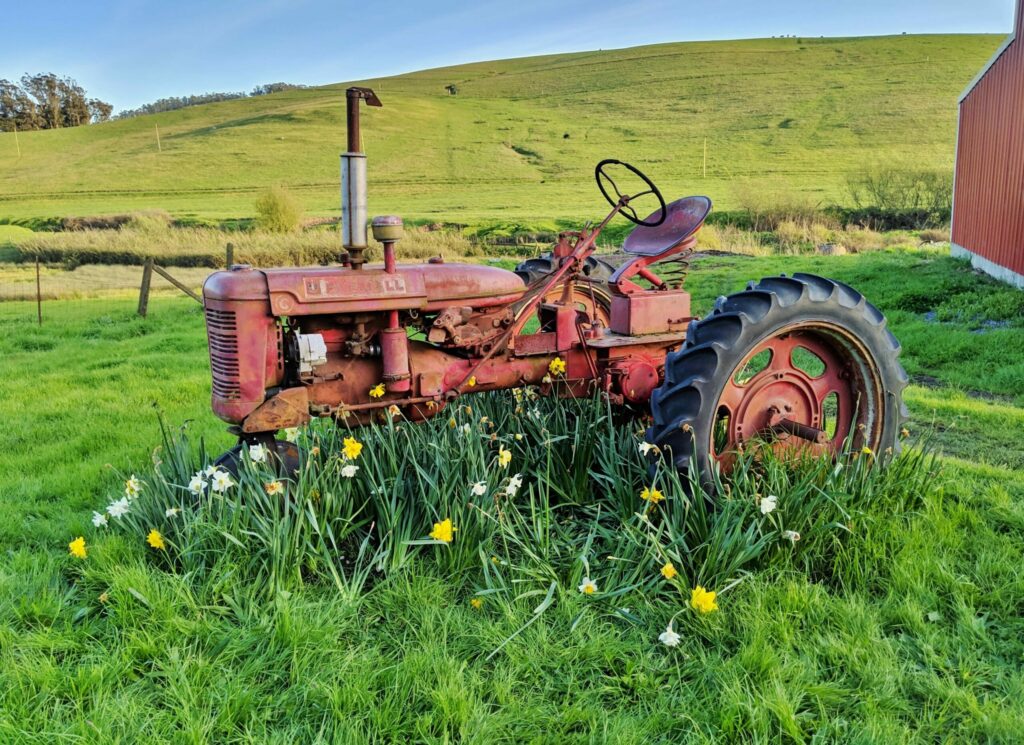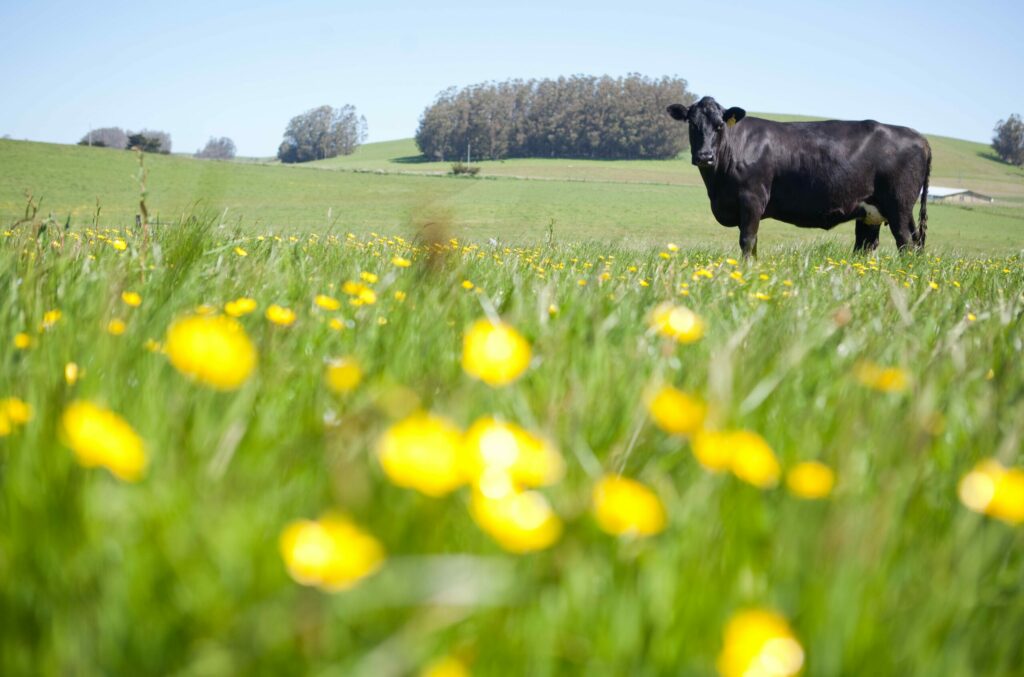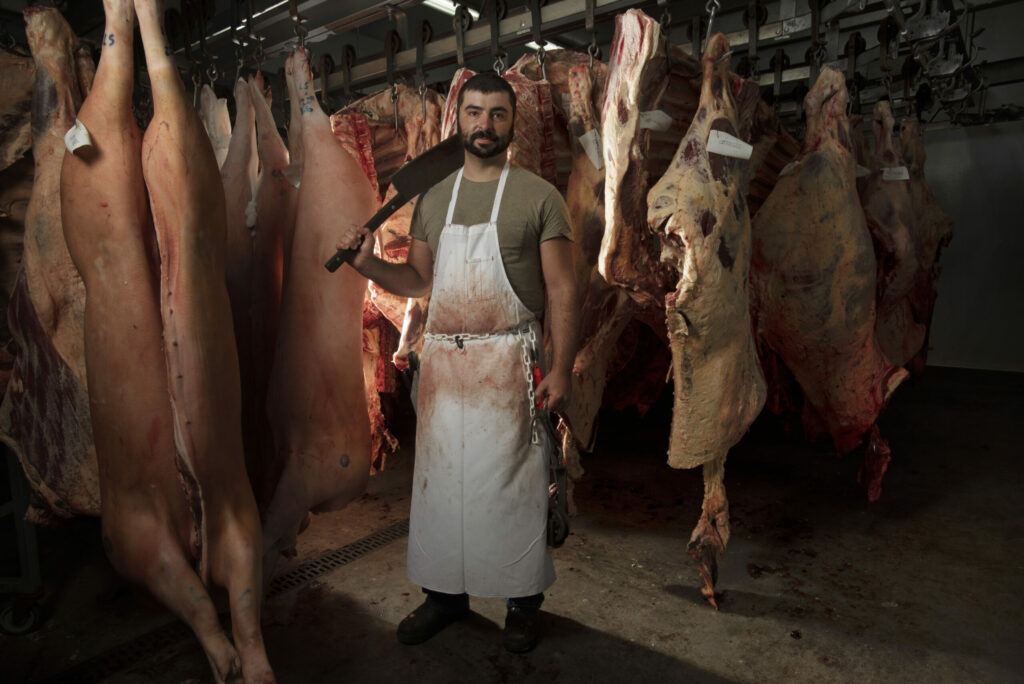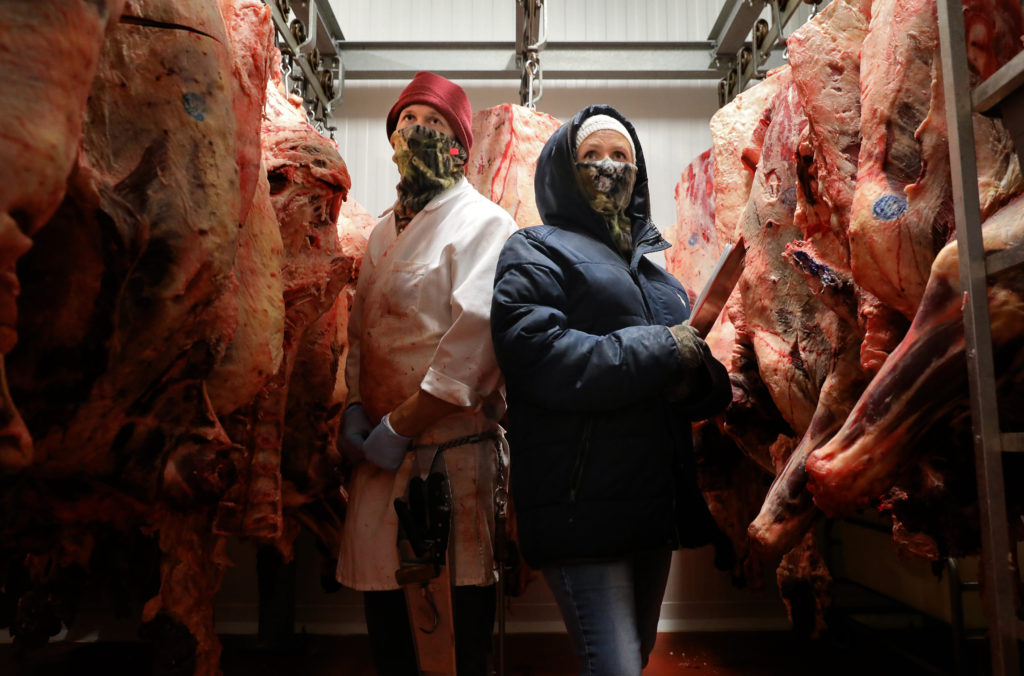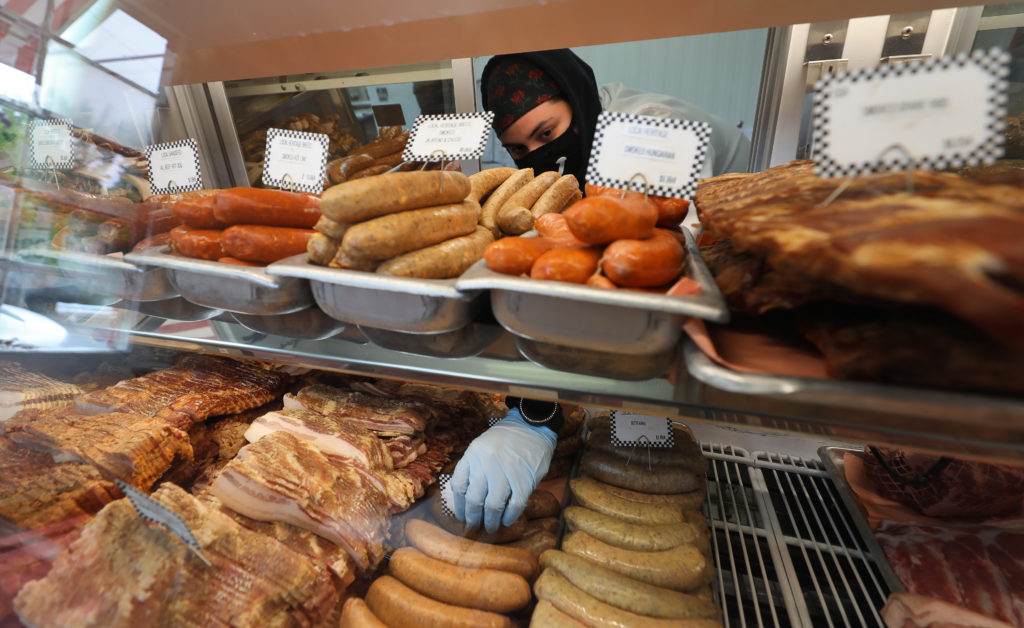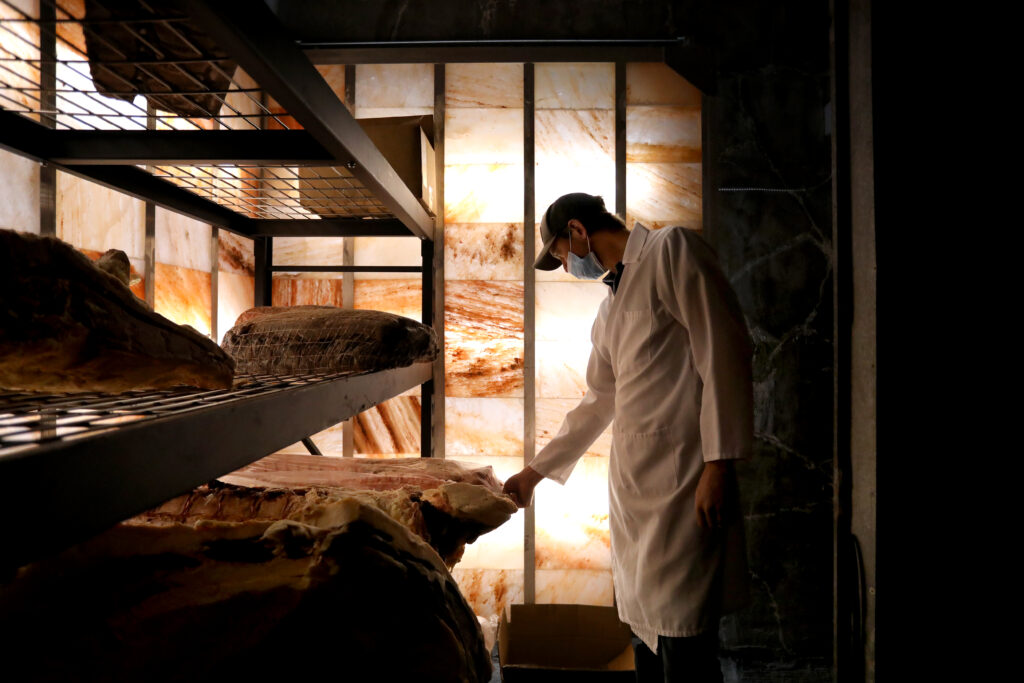When Santa Rosa home cook Hunter Odem shops for pork, it’s different from the way many of us shop. He simply calls up a local rancher and orders an entire pig.
“I just sent a whole, 200-pound hog to the butcher,” he says. “I get one every six months for me, my wife, and our 2 and 4-year-old kids, and we pack our standalone freezer.”
For Camp Meeker resident Jennifer Sheehan, planning dinner for her husband and son is a breeze. Chances are good that the meal will include pork or lamb from the chest freezer in her workshop, perhaps posole with pork shank and hominy or a lamb ragu with hearty meatballs. It takes about a year for the Sheehans to eat a hundred pounds of lamb, she says, and maybe eight months to finish a whole pig.
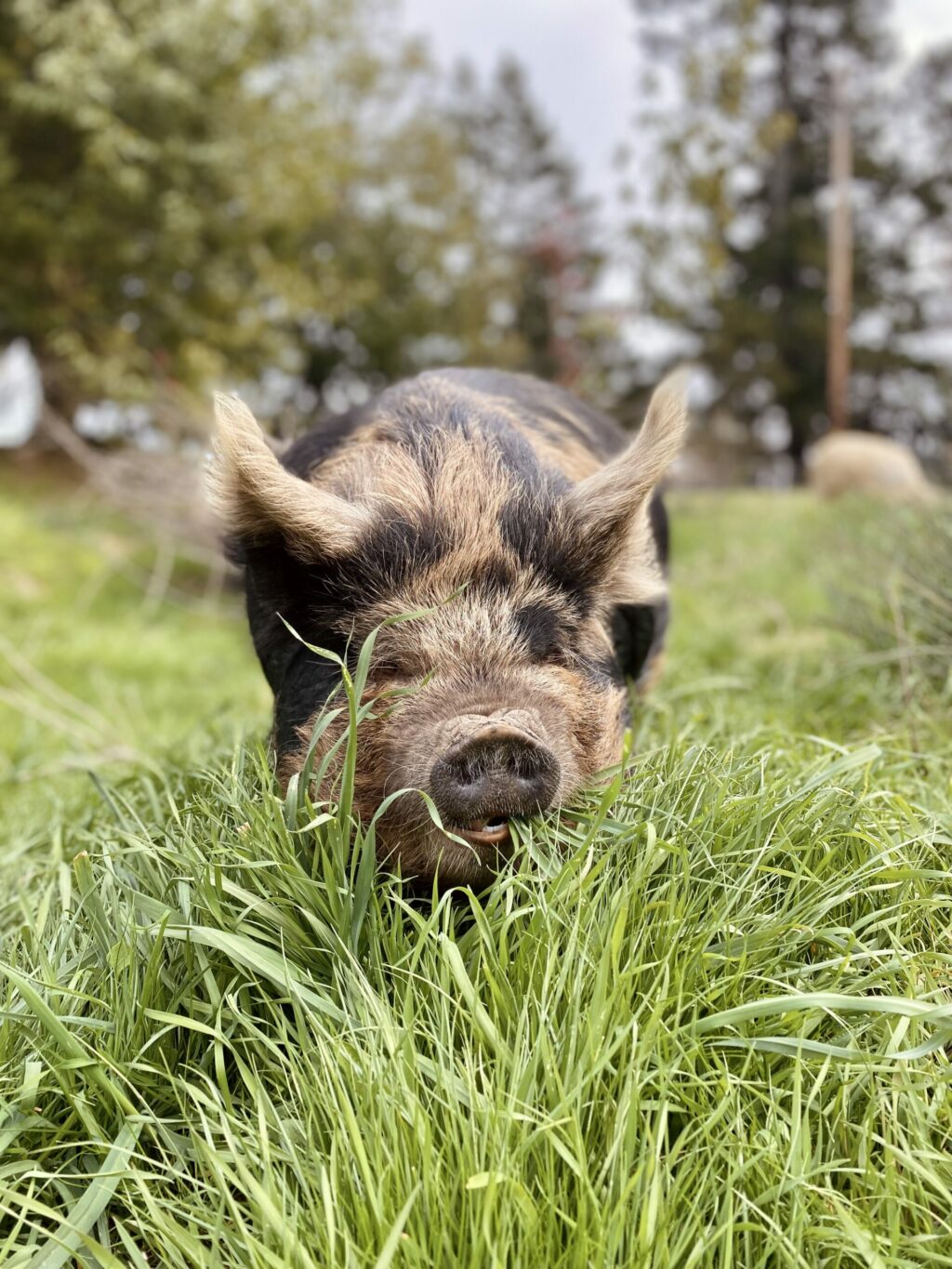
Sonoma County is home to plenty of home cooks who purchase whole animals, parceling and freezing the cuts to feast on all year long. Many believe in the importance of supporting local ranchers and reducing the distance from field to plate. Many local ranches practice rotational grazing and regenerative agriculture for optimum soil health, and their animals often enjoy more humane conditions.
Home cooks like Odem and Sheehan also love that the boutique, grass-fed meat they purchase is deeply delicious. “Oh my gosh, we eat that whole hog so quickly,” Sheehan says with a laugh. “It’s the best meat I’ve ever had. We got our first pig two years ago, made BLTs and said, oh my goodness, we can never eat bacon from anywhere else again. It’s just so much richer and meatier, and there’s just something to it that you can’t get from the grocery store.”
For Odem, who grew up raising livestock with his 4-H club, it’s always been important for him to know where and how his food arrives on his plate.
“I actually go out to where ranchers are raising my meat, and see how they take care of everything,” he says. “I want to know what those animals are going through and trust the meat. If you don’t know where the meat comes from, you have to cook it more for safety, and that usually makes it tougher and dryer.”
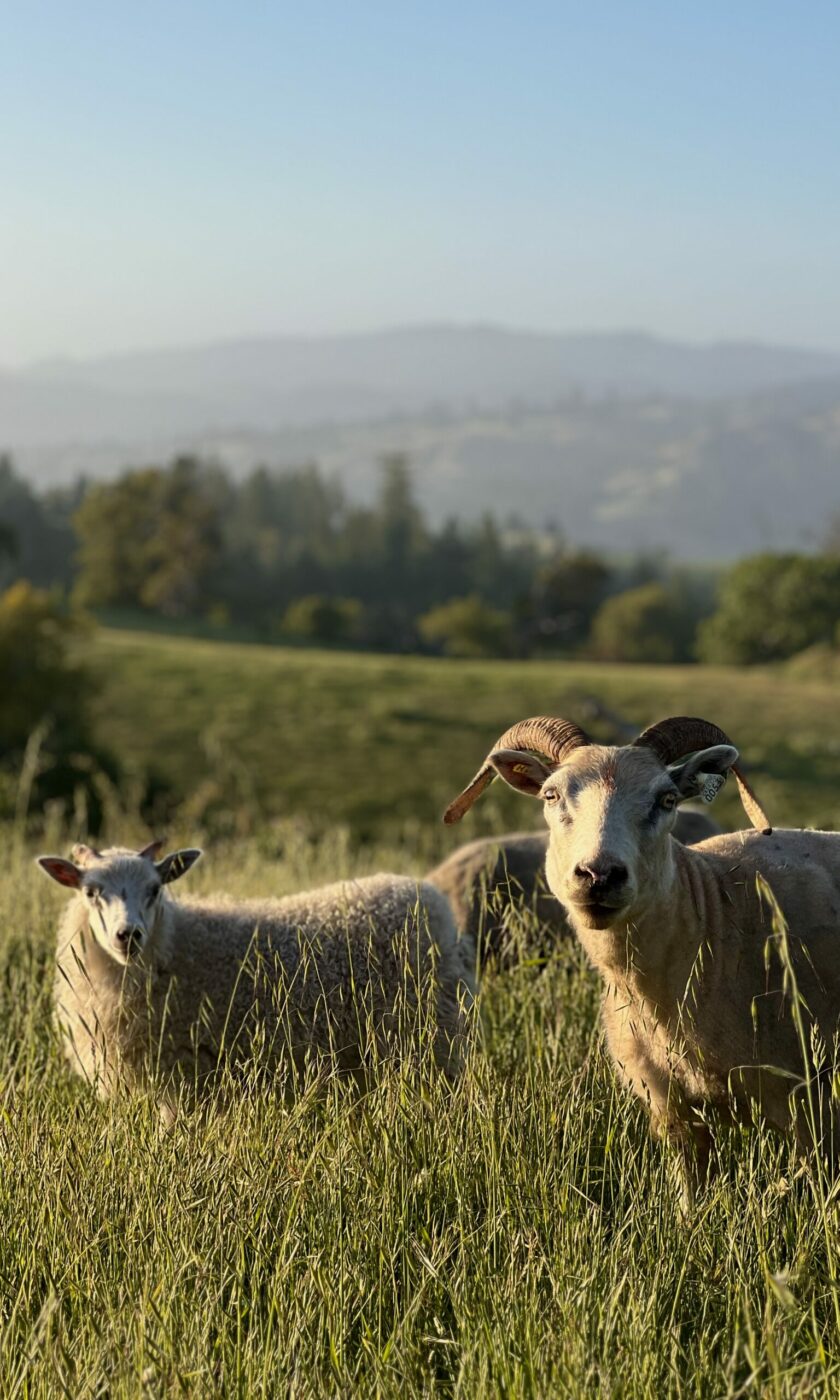
Odem and Sheehan source meat for their families from Wild Things Ranch in Cazadero, where owner Charity Epperson specializes in unusual heritage Icelandic lamb and New Zealand kunekune pigs. Epperson grew up on the protected wetland Grizzly Island in Suisun Bay, with parents who worked a 2,500-acre preserve for cattle ranchers and sheep grazers needing vegetation management in sensitive areas.
“When we were growing up, we never bought meat from the grocery store,” Epperson recalls. “We either raised it or hunted it.”
Epperson’s husband, Sam, was raised on his family’s 1800s ranch in the rugged Cazadero mountains, 7 miles from the coast, where the business is now based. Epperson brought the first animals to Wild Things Ranch in 2018. Because the animals she raises are heritage breeds, they grow more slowly and naturally than commercial breeds. “That yields better flavor and texture, since the meat has time to mature,” Epperson says.
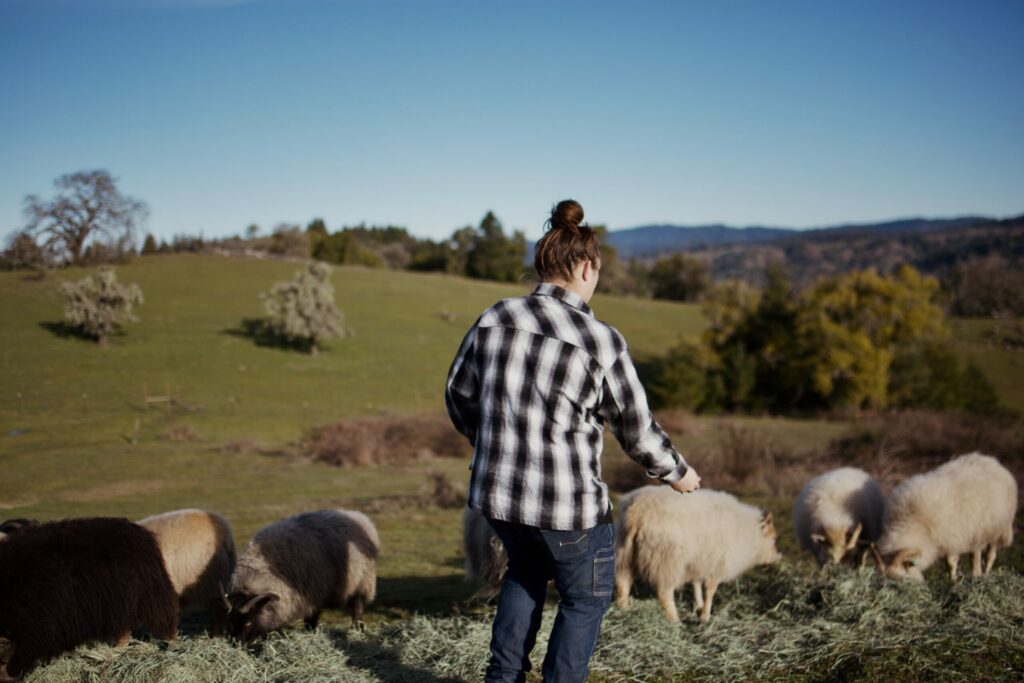
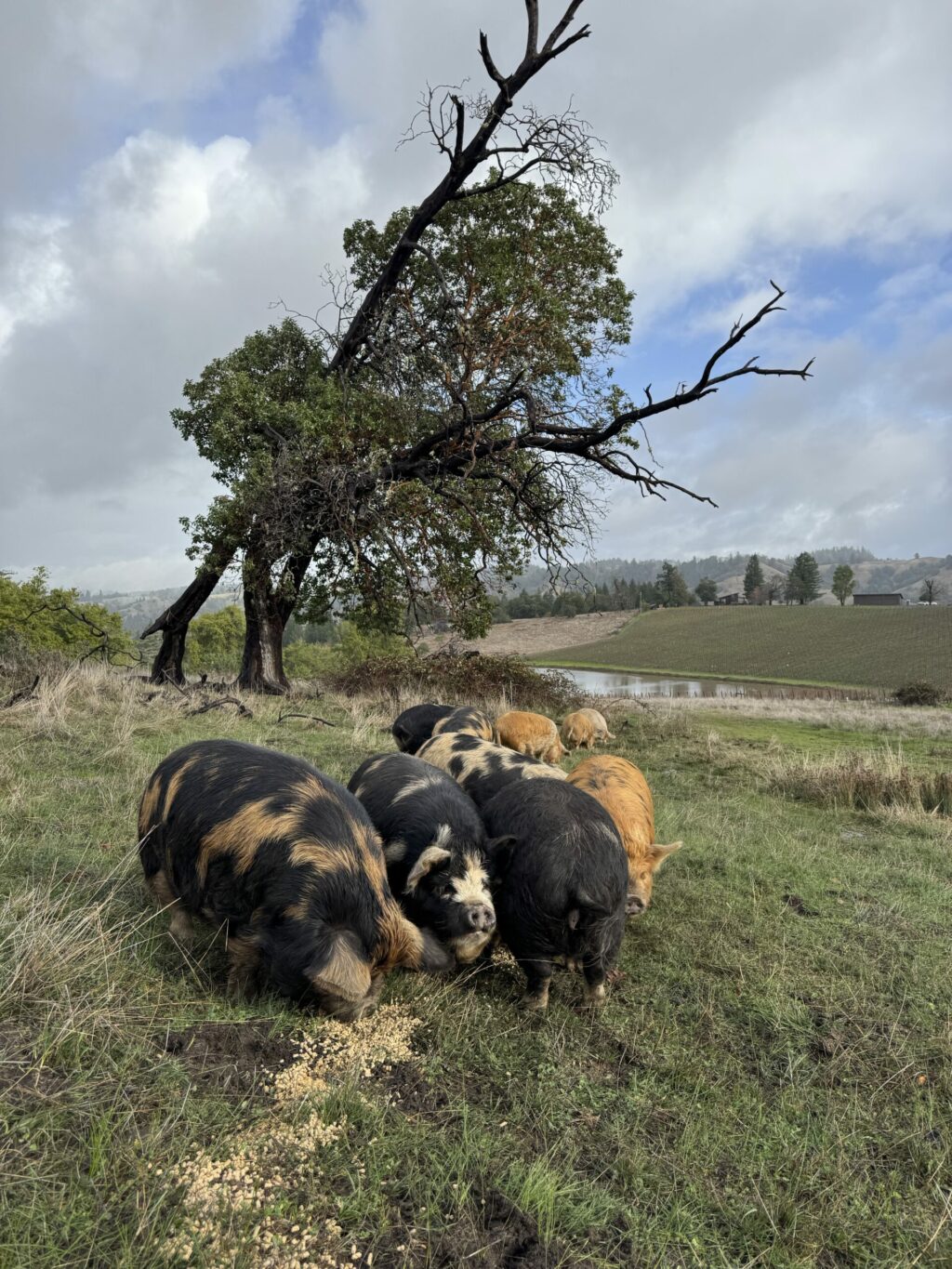
“Kunekune” means ‘fat and round’ in Maori,” she explains, referring to the New Zealand Indigenous language. “The pork is outstanding, with excellent marbling, a deep red color similar to beef, and rich, sweet flavor. They’re a lard breed, so their bacon tastes almost candied after it caramelizes in cooking.” Her ranch’s Icelandic lamb, too, is sweeter than most other lamb meat, distinctively delicately textured and much leaner.
With the variety of cuts she receives in a bulk order, Sheehan says she never worries about driving her family into palate fatigue. “I love to create recipes and cook,” she says. “And pork and lamb are such versatile meats that I make little spins on it and really utilize every single piece.” Taking home bones for savory, soul-soothing broth is a given; brains, heart, and other offal are optional.
At Wild Things Ranch, animals are harvested by a mobile, USDA-certified slaughter service, saving the animals the stress of being transported to a facility. The harvested meat then goes to Willowside Meats butcher shop to be cut and wrapped for pickup. An animal’s hanging weight, or what the purchaser actually receives, is quite a bit lower than its weight at harvest.
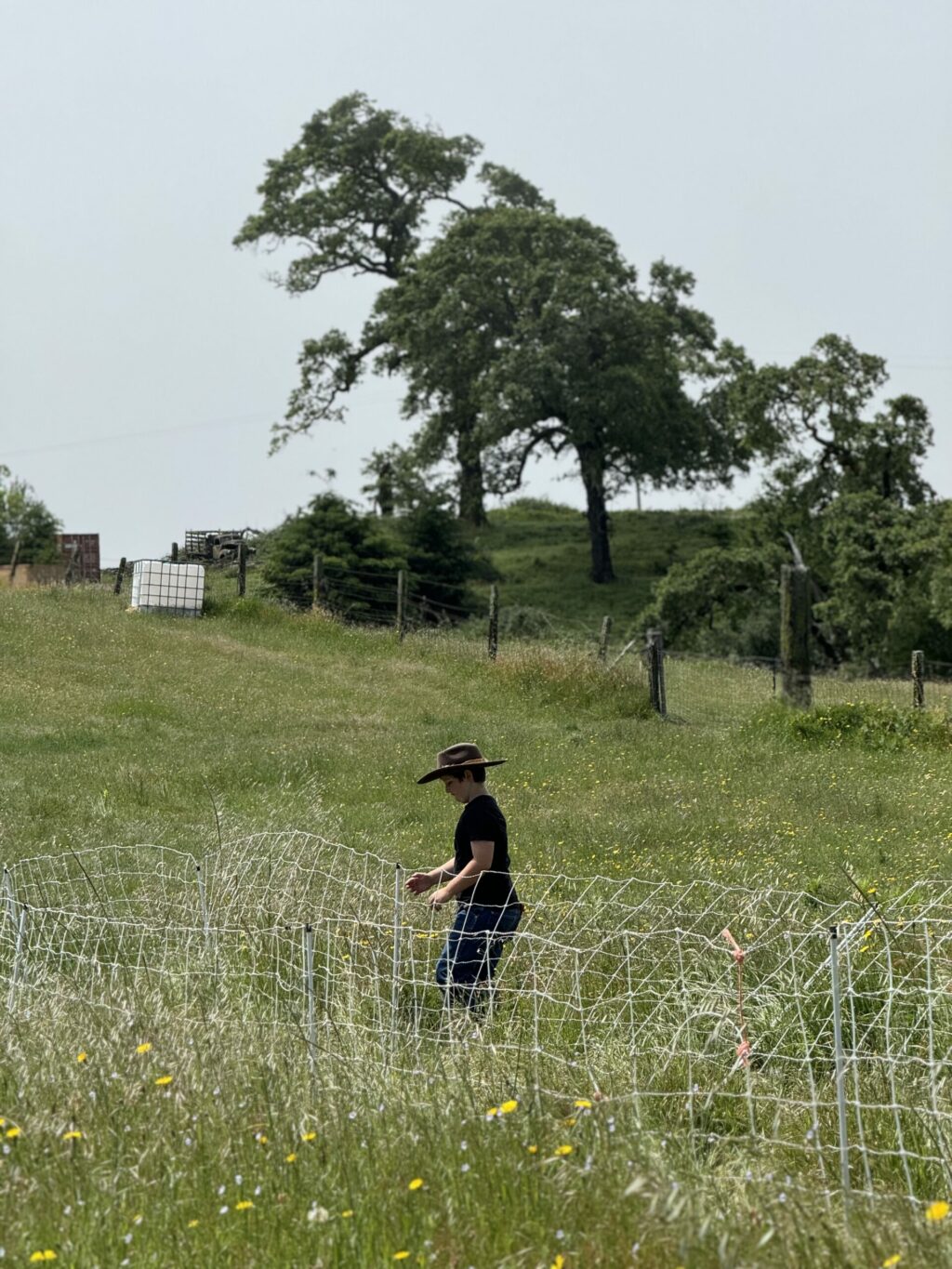
For a 150-pound pig, purchasers take home about 120 pounds, and only pay for that final poundage. A 100-pound lamb nets about 55 pounds of product. “We eat a lot of meat, so we usually can power through it by ourselves,” Odem says. For smaller households, folks often split an order with neighbors or friends.
In days past, investing in a chest freezer full of meat could be risky. In wildfire seasons, power outages made protecting perishable foods difficult, and often impossible. Some Sonoma County residents took to hosting block parties to make sure their freezer victims didn’t go to waste while sharing some much-needed love with the community.
Now, though, freezing food is actually great for disasters, if you’re prepared. “Our deep box freezer is completely fine for about 24 hours,” Sheehan explains. “We do have a generator, because we live in the woods, so we kind of have to. And thawing meat is easier than driving to the store in a disaster.”
The nearest Sebastopol supermarket is about 17 miles round-trip from her rural home. Culinary survival is even easier for Odem, a professional electrician. “I have access to a lot of generators and I’m pretty handy with being able to get around anything that pops up.”
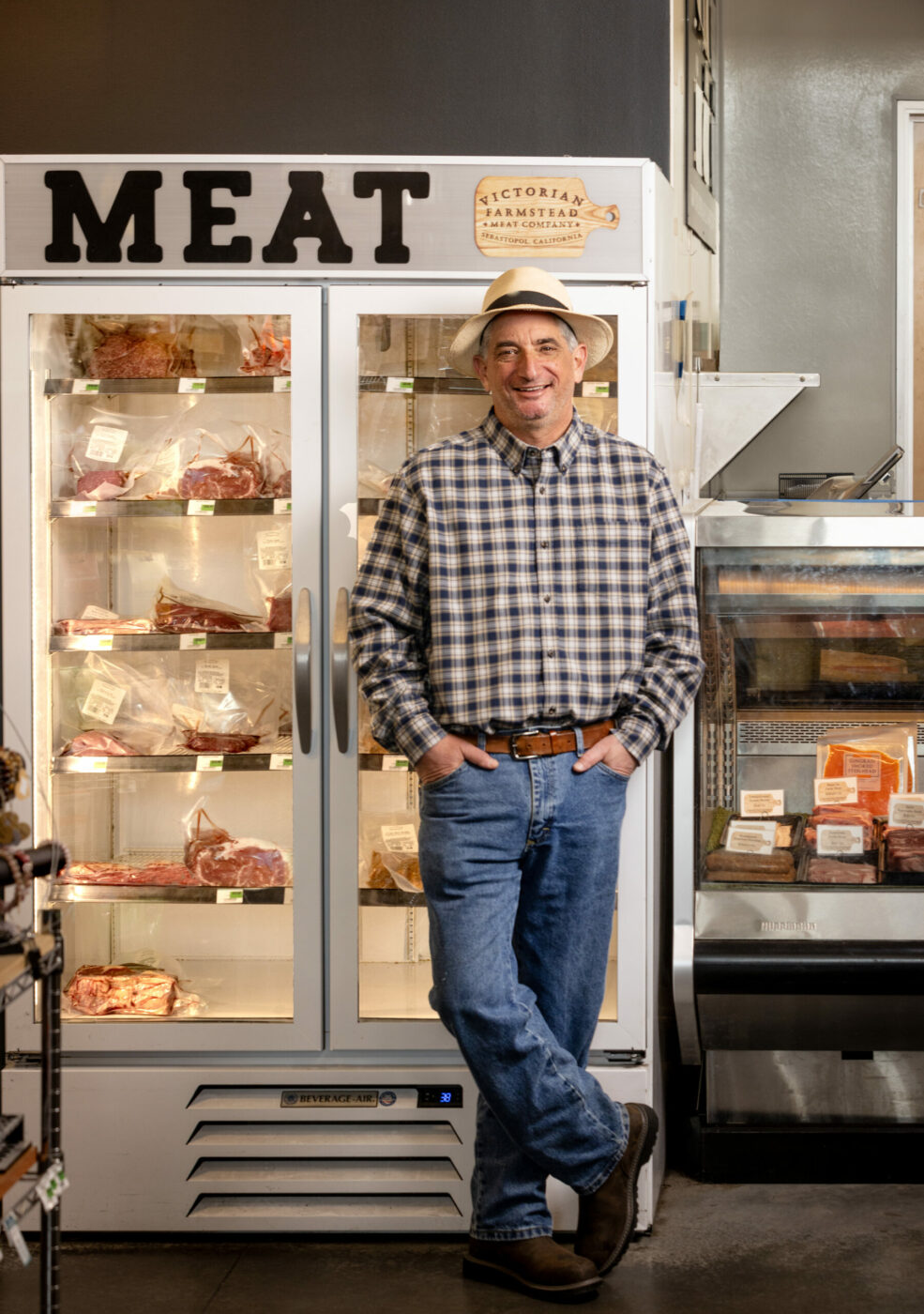
Victorian Farmstead Meat Company owner Adam Parks is well known for the variety of locally raised meats he stocks at his stand inside Community Market at The Barlow. He works with nearly a dozen family-owned farms across Sonoma and Marin counties, hand-selecting unexpected meats like quail and Pitman Family Farms Cornish hen. He can also handle custom butchering, including succulent brisket-chuck burger mix and porchetta wrapped in skin-on pork belly.
“There really is a difference with local meats,” says Parks. “I can go to the ranches and see the animals being raised. I know what they’re feeding them, if anything, other than pasture. I know how they’re being humanely handled. And I trust these farmers.”


